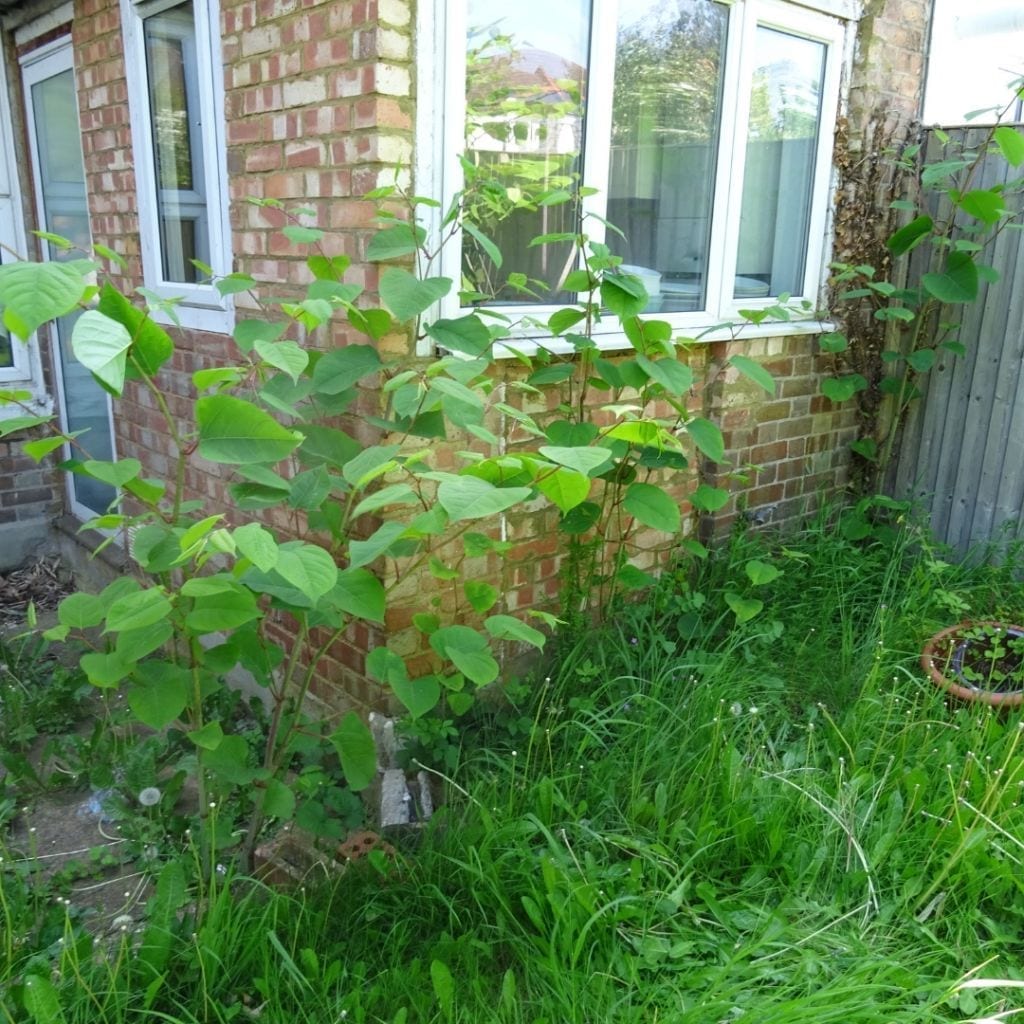
Japanese Knotweed is an invasive non-native plant pest and is considered one of the most problematic plant species in the UK and Ireland. This is mainly due to its highly invasive nature and its extremely rapid growth rate. The species was introduced to Britain in mid-19th century as an ornamental plant for large gardens, prized due to its imposing size and sprays of creamy white flowers.
Immediate Action Once Discovered
During the spring and summer months, Japanese knotweed has been reported to grow as quickly as 10cm a day. However, there is no research to support how fast it spreads underneath the ground. Japanese Knotweed has an extensive underground rhizome system that can spread up to 7 metres horizontally and 3 metres deep. Due to this extensive growth, it is important that once Japanese knotweed has been identified in the area or neighbouring garden that a plan is in place to further stop the spread of the plant.
The first call to make would be to a PCA accredited company, as they will be able to provide you with a Japanese Knotweed report with photographic evidence of growths of Japanese Knotweed on neighbouring properties. This will not only protect yourself in the long run, but encourage the problem to be dealt with in a professional and legal manner, by placing the growth under a formal management plan. Speaking to your neighbour initially about the issue and tackling the problem together is always a good place to start. Sometimes though, if a neighbour is unresponsive or being negligent, it has been known for court action to be taken.
Please see the Laws of Japanese Knotweed that may relate to neighbouring properties:
Anti-Social Behaviour, Crime & Policing Act
The Anti-social Behaviour, Crime and Policing Act 2014 does not specifically mention invasive plants; however, guidance has been released by the Home Office providing information on how Community Protection Notices can be applied to Japanese Knotweed. In effect, the updated legislation means that if a neighbour ‘fails to act’ regarding controlling, or preventing the growth of Japanese Knotweed, then, providing certain criteria are met, a Community Protection Notice could be issued requiring action to be taken. Breach of any requirement of a Community Protection Notice, without reasonable excuse, would be a criminal offence, subject to a fixed penalty or prosecution.
Common Law
For any queries on the above or if you would like a free identification of a potential Japanese Knotweed plant, please contact us at info@cyb-environmental.com

